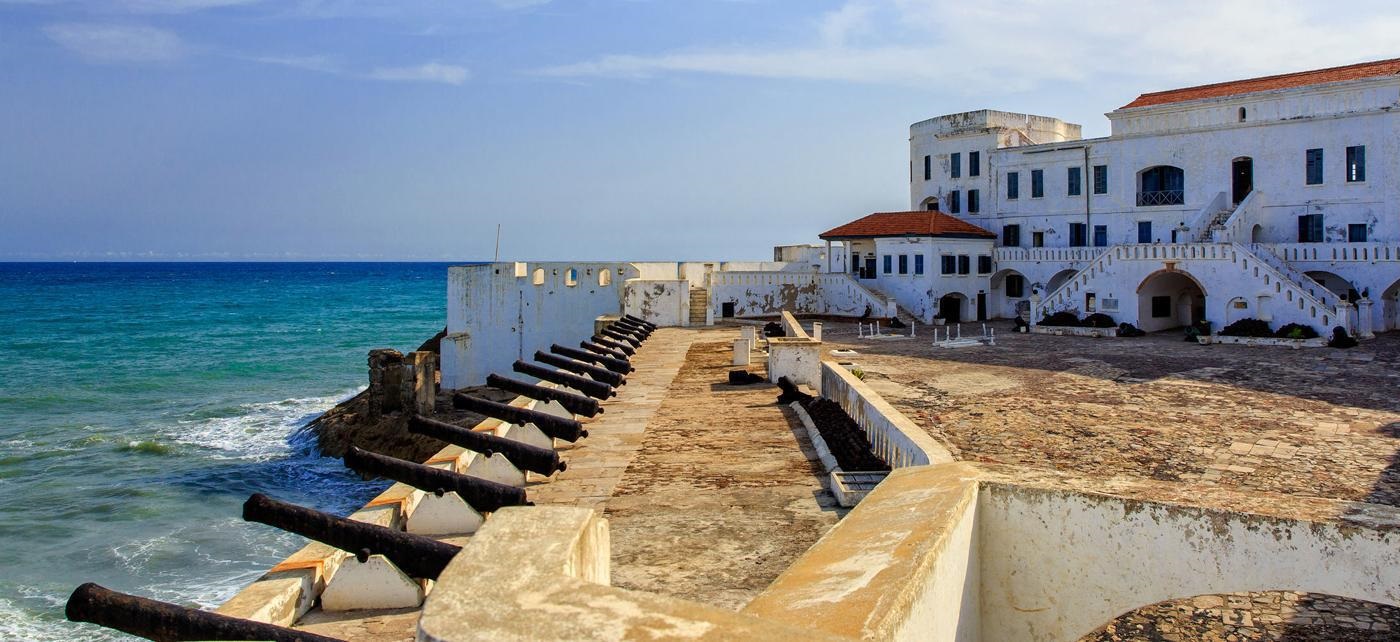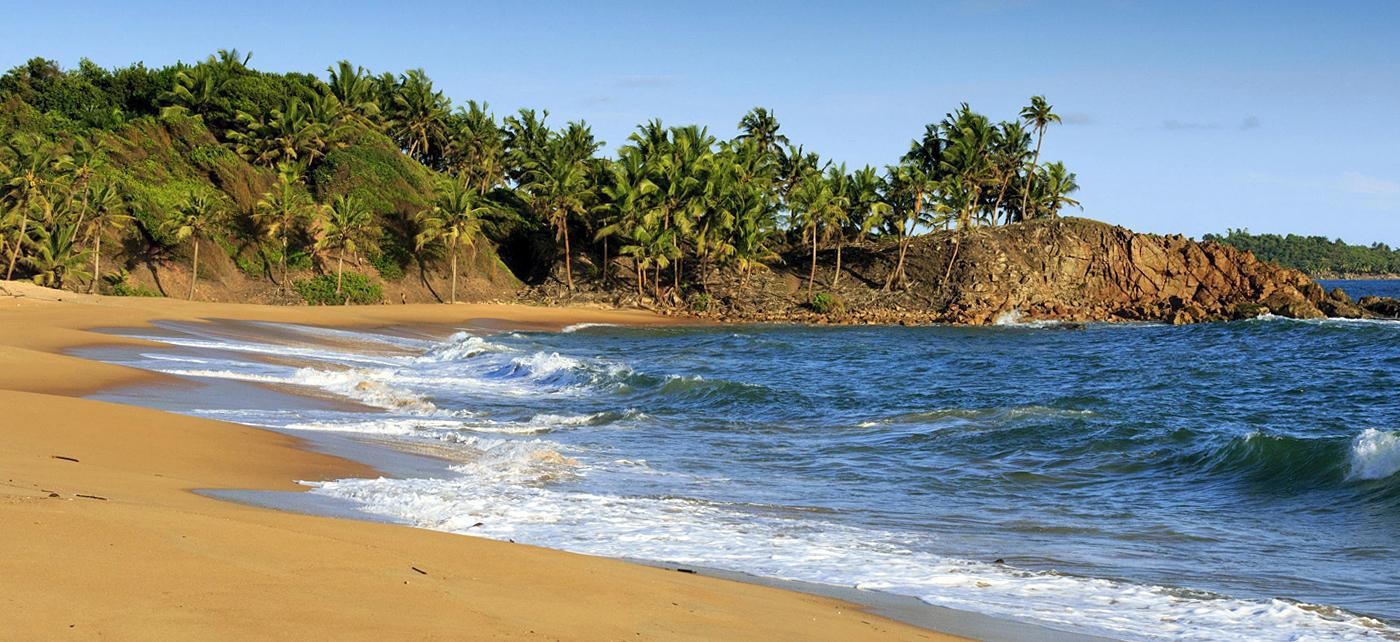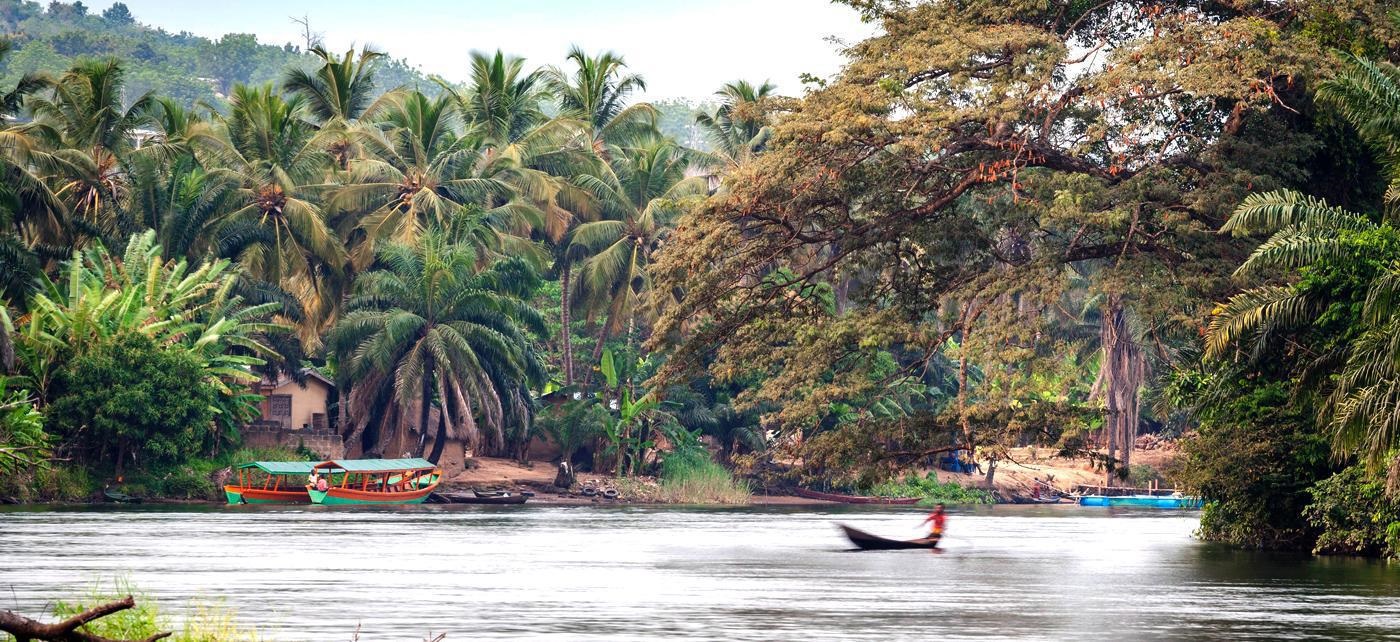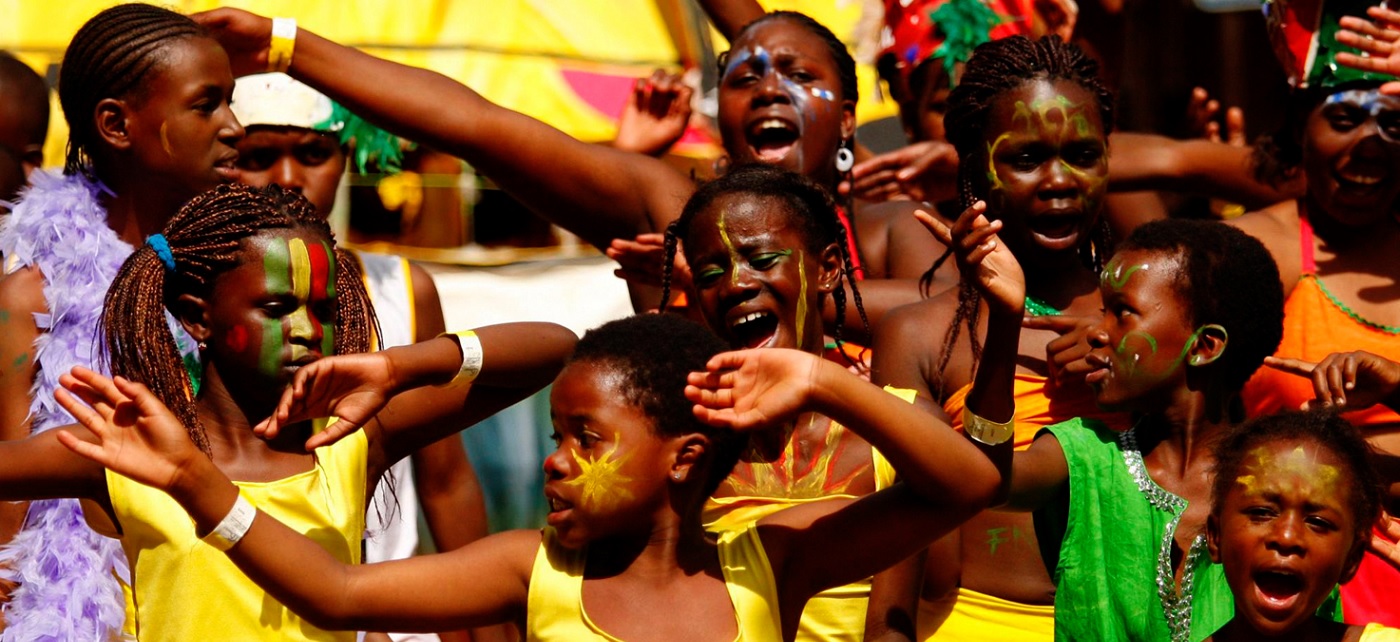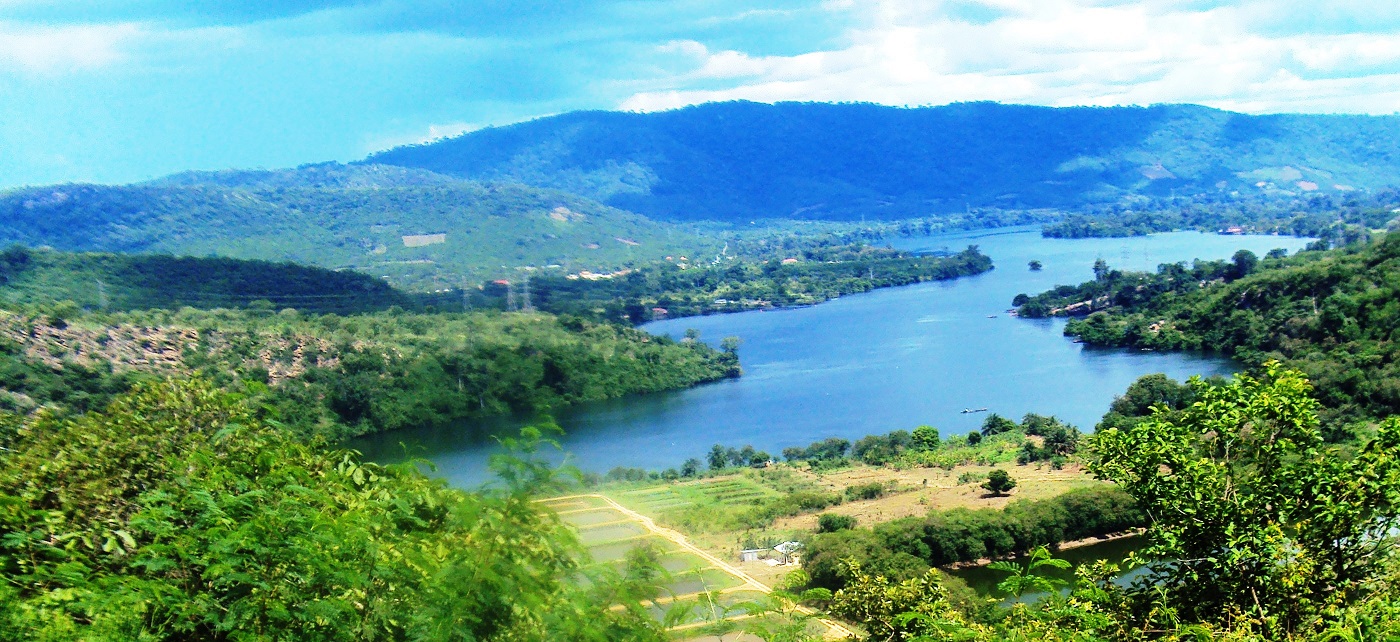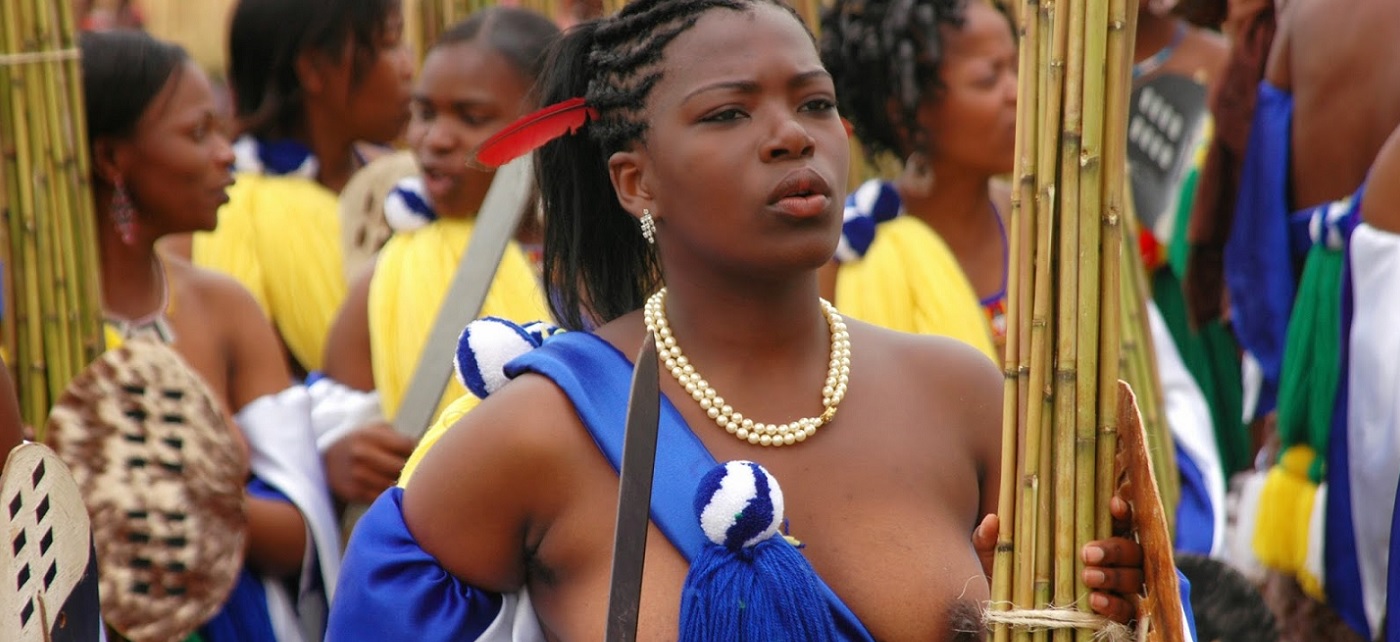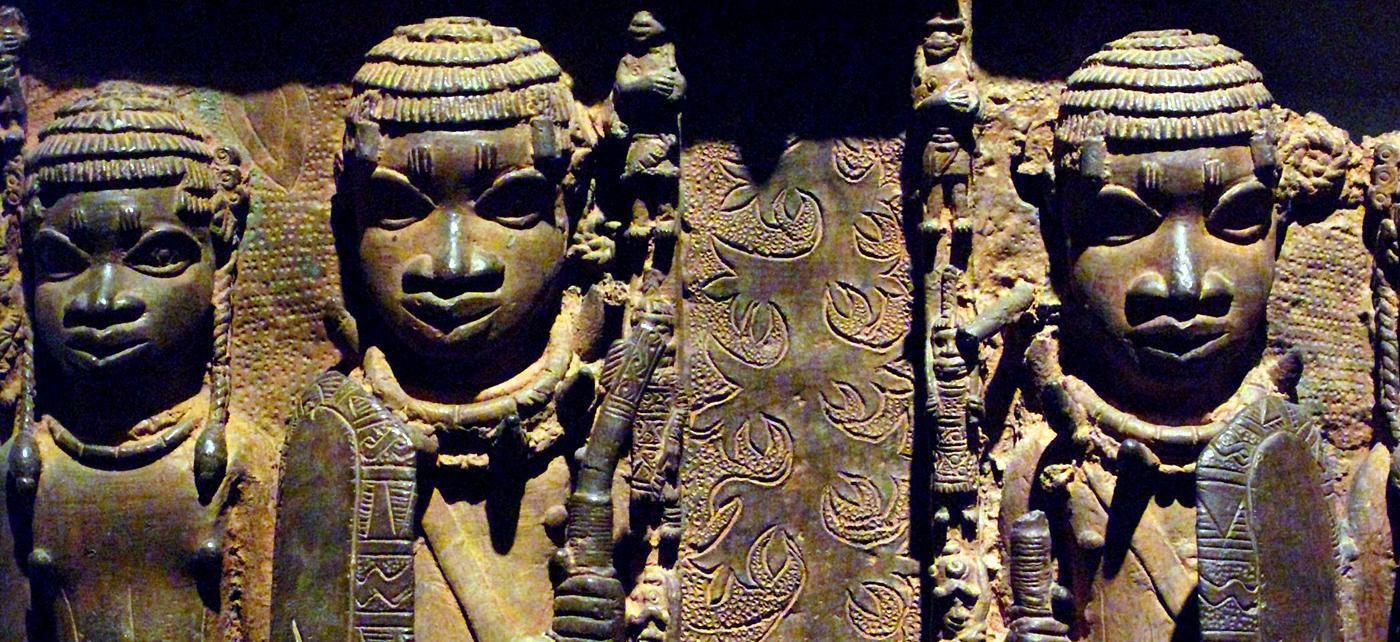Ghana, officially the Republic of Ghana, is a country located in West Africa. It is bordered by Côte d'Ivoire (Ivory Coast) to the west, Burkina Faso to the north, Togo to the east, and the Gulf of Guinea to the south. The word Ghana means "Warrior King" and is derived from the ancient Ghana Empire.
Ghana was inhabited in pre-colonial times by a number of ancient predominantly Akan kingdoms, including the inland Ashanti Empire, the Akwamu, the Akyem, the Bonoman, the Denkyira, and the Fante among others. Non-Akan states created by the Ga and Ewe also existed as did states by the Gonja, Dagomba and others. Prior to contact with Europeans trade between the Akan and various African states flourished due to Akan's gold wealth. Trade with European states began after contact with the Portuguese in the 15th century, and the British established the Gold Coast Crown colony in 1874 over parts but not all of the country.
According to the 2009 Failed States Index, Ghana is ranked the 53rd least failed state in the world and the second least failed state in Africa after Mauritius. Ghana ranked 124th out of 177 countries on the index. Ghana also was placed 7th out of 48 sub-Saharan African countries in the 2008 Ibrahim Index of African Governance which was based on data from 2006. The Ibrahim Index is a comprehensive measure of African government, based on a number of different variables which reflect the success with which governments deliver essential political goods to its citizens.
Ghana was created as a parliamentary democracy at independence in 1957, followed by alternating military and civilian governments. In January 1993, military government gave way to the Fourth Republic after presidential and parliamentary elections in late 1992. The 1992 constitution divides powers among a president, parliament, cabinet, council of state, and an independent judiciary. The government is elected by universal suffrage; however, the legislature is not proportionate, with low-population districts receiving more representatives per person than those with high populations.
Christianity is the main religion in southern areas, while Islam remains the most populous in the northern regions. Christian-Muslim relations in Ghana are peaceful, tolerant and bilateral, despite sectarian violence in neighbouring countries with similar regional divides like Cote d'Ivoire or Nigeria. In many parts of the country, there is still the practice of traditional religions and these are sometimes intermixed with Christianity or Islam. They generally involve belief in a supreme being along with a pantheon of lesser gods, similar to Hinduism or Classical religion. Ancestors and spirits also play a large role in these beliefs, as does animist aspects.
Ethnologue lists a total of 79 languages for Ghana. English is the country's official language and predominates in government and business affairs. It is also the standard language used for educational instruction. Native Ghanaian languages are divided into two linguistic subfamilies of the Niger–Congo language family. Languages belonging to the Kwa subfamily are found predominantly to the south of the Volta River, while those belonging to the Gur subfamily are found predominantly to the north. The Kwa group, which is spoken by about 75% of the country's population, includes the Akan, Ga–Dangme, and Ewe languages.
